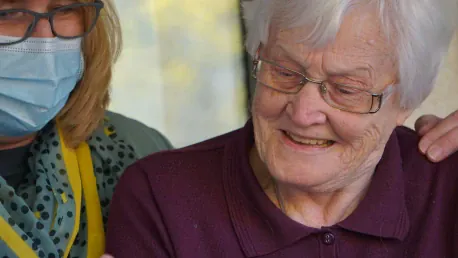The topic of elderly care is becoming increasingly significant as recent incidents have raised concerns about the safety and well-being of seniors in various eldercare facilities across the United States. This comprehensive analysis focuses on the safety issues in assisted living and nursing homes, the variations in care quality across different facilities, the emotional and physical toll on family caregivers, the growing advocacy for reform, and the steps being taken to address these concerns.
Recent incidents in elderly care facilities have sparked a nationwide outcry, resulting in families and advocates demanding more stringent safety protocols and improved oversight. Reports reveal troubling variances in the quality of care provided by nursing homes and assisted living centers, leading to widespread concern over how elderly residents are treated. The mixed picture painted by these reports shows dedicated healthcare professionals working alongside instances of neglect and inadequate care, prompting calls for systemic reform.
Safety Issues in Elderly Care Facilities
Incidents Highlighting Neglect and Inadequate Care
One illustrative case is the situation at Happy Haven Nursing Home, where residents were reportedly left unattended for extended periods. This neglect was documented by a family member who recorded footage of staff allegedly skipping necessary duties, resulting in severe consequences for the vulnerable residents. Such incidents have led families to scrutinize the management practices of these facilities and question their commitment to providing quality care.
Advocates for elderly rights are gaining momentum, emphasizing the necessity for higher standards and greater accountability within eldercare facilities. Organizations focused on patient safety are pushing for regulatory changes and more rigorous inspections to ensure that elderly residents are treated with dignity and compassion. Emily Frazier, the president of Advocates for Seniors, has stated, “We need to prioritize our elderly population, ensuring they are treated with dignity and compassion. The current standards are clearly not enough to protect the most vulnerable.”
Variations in Care Quality Across States
Statewide Discrepancies in Elderly Care
Data from the National Center for Health Statistics reveals significant statewide variations in the quality of elderly care. For instance, nursing homes in Texas and California are noted for on-site deficiencies, including mismanagement of medications and inadequate staffing. These issues not only compromise the safety of elderly residents but also highlight larger systemic flaws in the eldercare industry.
Families are mobilizing, leveraging social media platforms to share their experiences and apply pressure on lawmakers to address these disparities. Hashtags like #ElderCareNow and #SeniorsDeserveBetter are trending, drawing widespread attention to the urgent need for reform. This public outcry has already led some states to begin implementing more comprehensive eldercare reforms.
Emotional and Physical Toll on Family Caregivers
Challenges Faced by Family Caregivers
The issue extends beyond large facilities to family caregivers who bear the burden of caring for elderly relatives at home. These caregivers often face burnout due to the demanding nature of their responsibilities. Many express feeling unprepared for the tasks required, leading to stress and potential safety risks for their elderly loved ones. Conversations on mental health have gained traction as the emotional toll on caregivers becomes more recognized. A recent study by AARP indicated that nearly 60% of caregivers feel overwhelmed by their duties, highlighting the need for additional support and resources.
Progress toward improving safety protocols within facilities is being made, albeit slowly. Some nursing homes are adopting new technologies, such as remote monitoring systems, aimed at increasing oversight and ensuring higher standards of care. These advancements promise to hold healthcare providers accountable and improve the level of care received by elderly residents.
Financial Transparency and Simplified Regulations
The Need for Clearer Financial Models
Financial transparency has emerged as another critical issue. Many families are unaware of how their payments are allocated, particularly how much goes toward quality care versus administrative fees. Advocates are calling for clearer breakdowns of costs, enabling families to make financially informed decisions about elderly care. Lawmakers have introduced proposals requiring nursing homes to disclose their financial models, ensuring families can evaluate where every dollar is spent. Senator Karen Williams stated, “People deserve to know how their money is spent. Families are putting their trust in these facilities, and they have to be able to evaluate where every dollar is going.”
Simplifying Complex Coding Issues
Complex coding issues also add to the challenges faced by families and caregiving staff. Legislation is being proposed to simplify these regulations, making it easier to understand what constitutes appropriate care. Simplifying these standards could improve compliance and clarify the responsibilities of care providers.
Misinformation and Education
Addressing Misinformation and Educating Families
Addressing misinformation and educating families is crucial in improving elderly care. Providing accurate information about care standards, legal rights, and available resources can empower families and caregivers to make better decisions for their loved ones. Efforts to increase transparency and access to reliable information are essential components of the ongoing reform in elderly care. Educating the public about the complexities and responsibilities involved in eldercare will help raise awareness and drive significant changes to benefit the elderly population.









